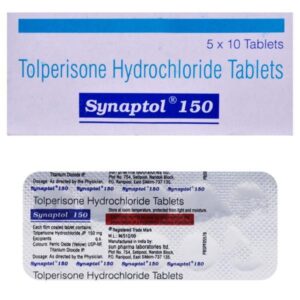DEXTROMETHORPHAN + AMMONIUM CHLORIDE + LEVOSALBUTAMOL
Dextromethorphan: Dextromethorphan (DXM) is a medication primarily used as a cough suppressant. It is commonly found in over-the-counter cough and cold medications. DXM is an opioid derivative but does not possess strong analgesic properties like other opioids.
The mechanism of action of DXM involves acting on the brain’s cough center, specifically the medullary cough center in the central nervous system. It works by blocking the cough reflex, reducing the urge to cough.
The recommended dose of DXM varies depending on the product and the age of the patient. For adults, the typical dose ranges from 10 to 30 milligrams every four to six hours, with a maximum daily dose of 120 milligrams. It is essential to follow the instructions provided by the manufacturer or consult a healthcare professional for proper dosing.
Common side effects of DXM include drowsiness, dizziness, nausea, vomiting, and stomach upset. At higher doses or with recreational abuse, DXM can produce more pronounced effects like confusion, hallucinations, dissociation, and impaired coordination. Therefore, it is crucial to use DXM as directed and avoid exceeding the recommended dose.
DXM can interact with certain medications, such as monoamine oxidase inhibitors (MAOIs) and serotonin reuptake inhibitors (SSRIs), potentially leading to a serious condition called serotonin syndrome. It is important to inform healthcare providers about all medications being taken to avoid any potential drug interactions.
In summary, Dextromethorphan is a cough suppressant commonly used to relieve cough symptoms. Its mechanism of action involves blocking the cough reflex in the brain. While DXM is generally safe when used as directed, it can cause side effects such as drowsiness and dizziness. It is important to follow the recommended dose and avoid interactions with other medications.
Ammonium Chloride: Ammonium Chloride is a medication that is commonly used as an expectorant to help loosen and thin mucus in the airways. It is primarily prescribed for individuals with respiratory conditions such as chronic bronchitis, bronchiectasis, and cystic fibrosis.
The mechanism of action of Ammonium Chloride involves its ability to acidify the urine and increase the flow of urine. This helps to reduce the viscosity of mucus and improve its clearance from the airways. Ammonium Chloride also has a mild irritant effect on the gastric mucosa, which stimulates the production of respiratory secretions.
The typical dose of Ammonium Chloride for adults is 200-500 mg, taken orally two to three times a day. The dosage may vary depending on the individual’s condition and response to treatment.
While Ammonium Chloride is generally well-tolerated, some potential side effects may occur. These can include gastrointestinal symptoms such as nausea, vomiting, and stomach discomfort. Rarely, individuals may experience skin rash, itching, or allergic reactions. If any severe or persistent side effects are experienced, it is important to consult a healthcare professional.
It is important to note that Ammonium Chloride should be used with caution in individuals with certain medical conditions, such as liver or kidney disease, as well as in pregnant or breastfeeding women. It may also interact with other medications, so it is essential to inform the healthcare provider about any other medications being taken.
Overall, Ammonium Chloride is an expectorant medication commonly prescribed to help manage respiratory conditions by loosening and thinning mucus. It is important to follow the prescribed dosage and consult a healthcare professional if any concerns or side effects arise.
Levosalbutamol: Levosalbutamol, also known as levalbuterol, is a bronchodilator drug that is primarily used for the treatment of asthma and chronic obstructive pulmonary disease (COPD). It belongs to a class of medications known as beta-agonists.
The main mechanism of action of levosalbutamol is through its stimulation of beta-2 adrenergic receptors in the smooth muscles of the airways. This leads to the relaxation of the muscles and dilation of the bronchial passages, resulting in improved airflow and relief from symptoms such as wheezing, coughing, and shortness of breath.
Levosalbutamol is typically administered through inhalation using a metered-dose inhaler or a nebulizer. The recommended dose varies depending on the severity of the condition but is usually 0.63 mg to 1.25 mg three to four times a day for adults and 0.31 mg to 0.63 mg three to four times a day for children. It is important to follow the prescribed dosage and frequency as instructed by a healthcare professional.
Common side effects of levosalbutamol include tremors, palpitations, increased heart rate, headache, dizziness, nervousness, difficulty sleeping, and throat irritation. These side effects are usually mild and temporary. However, if they persist or worsen, it is important to consult a healthcare provider.
Rare but serious side effects may include chest pain, irregular heart rhythm, high blood pressure, and allergic reactions such as rash, itching, swelling, or difficult breathing. Immediate medical attention should be sought if any of these symptoms occur.
It is important to note that levosalbutamol is not a rescue medication for sudden asthma attacks. It is mainly used for prevention and long-term management of asthma symptoms. Short-acting beta-agonists such as albuterol are usually prescribed for immediate relief during acute asthma episodes.
As with any medication, it is recommended to consult a healthcare professional before starting levosalbutamol to ensure its suitability and to discuss any potential interactions or contraindications with other medications or underlying health conditions.

